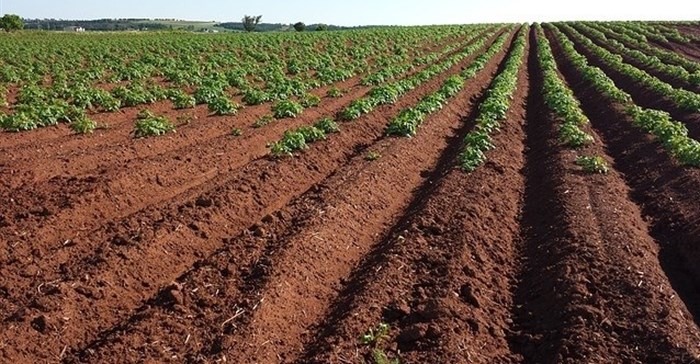In agriculture, soil microbes interact with plants to help crops fight off pests and disease and to adapt to climate stressors such as extreme heat and water scarcity. Already, in developed countries, microbial-based products for agriculture are a $2.3 billion market and growing.
Developing research capacity in soil science
But similar efforts in Africa are in their infancy. That’s why the success of this new initiative, based at the University of Pretoria’s Centre for Microbial Ecology and Genomics, and financed by USAID, is crucial. In addition to South Africa, it will involve Namibia, Botswana, Zimbabwe, Mozambique, Zambia, Ethiopia, Cote d’Ivoire, Nigeria, and Kenya. In highlighting the importance of Africa’s soil biodiversity, it sets the stage for African countries to develop their own research capacity in soil science.
The initiative will start simply. Soil samples packed into 1,000 zip lock bags, collected from ten African countries and a wide range of ecosystems will be delivered to the university center. There, scientists and technicians will scrutinise the DNA of bacteria, looking for new microbial species and their unique abilities to influence soil and crop health, plant growth, and resilience in a changing climate. With billions of bacteria teaming in each zip lock bag, the search
should be fruitful - and not a moment too soon.
Across Sub-Saharan Africa, 65 percent of agricultural soils are degraded, driving hunger and food insecurity.
Across Sub-Saharan Africa, 65 percent of agricultural soils are degraded, driving hunger and food insecurity. Soils are often too depleted to respond to conventional fertilisers, and many smallholder farmers are unable to benefit from the yield gains offered by new high-yielding seeds. Africa needs to adopt a holistic and integrated soil and land management strategy that restores the natural vitality of soil and enables it to support nutritious, high yielding crops. Soil microbes are an essential part of the solution.Investing in research and development in agriculture needed
The Pan-African soil microbe initiative must serve as a starting point. African countries need to devote a larger percentage of their national budgets to research and development in agriculture, with a significant portion dedicated to understanding the untapped wealth of our soils.
The African Union recommends that governments spend 1 percent of their agricultural GDP on agricultural research for development. But across Sub-Saharan Africa, the percentage invested has declined from 0.59 percent in 2006 to 0.51 percent in 2011. Ethiopia, for example, spent a paltry 0.19 percent of its agricultural GDP on research.
Substantial funds are needed to build the research capacity of African institutions. Every African region needs its own robust research capacity, with equipment and personnel for screening enormous numbers of bacterial samples and identifying and analysing the results. Experience in more developed countries shows that as this capacity grows, so will the results.
Investments by Monsanto and Novozymes under their BioAg Alliance, for example, have resulted in several products including a microbial coating for corn and wheat seeds that enables the plants to make better use of nitrogen and other natural nutrients in the soil, boosting yield. Bayer Crop Sciences has developed a bacterial seed treatment for soybeans that improves root growth, protects plants from pests, and increases yields by 15 percent. University laboratories are also making valuable discoveries.
At Auburn University, for example, I am part of a research team that has used soil microbes to improve the growth of corn and cotton plants while helping the plants to withstand insect damage and water stress. But such results typically take huge investments. Fully equipping a microbiology laboratory can cost anything from $300,000 to $1,000,000 - or more. Monsanto and Novozymes have invested $300 million for their joint venture into soil microbial research.
Collaborative research
Given the high cost, Africa needs highly committed partners and strong collaboration between public universities, companies and development organisations to strengthen its agricultural research capacity. Foundations also play a role. The Bill & Melinda Gates Foundation, for example, recently awarded AgBiome a grant to discover microbes capable of controlling sweet potato weevils that currently cause 60-to-100 percent crop losses in Sub-Saharan Africa. **
Collaborative research conducted in African laboratories will no doubt result in many novel discoveries, patents, and licenses. This, in turn, can spur the formation of startup businesses - and a whole industry - that can develop to support agriculture in Africa and globally moving forward.
The future of food, especially in Africa, depends on how we deal with the soil crisis today, our work to understand the life in soil all across Africa, and how we harness that knowledge to support African agriculture.
Esther Ngumbi is a post-doctoral researcher at the Department of Entomology and Plant Pathology at Auburn University in Alabama. She serves as a 2015 Clinton Global University (CGI U) Mentor for Agriculture and is a 2015 New Voices Fellow at the Aspen Institute.










































